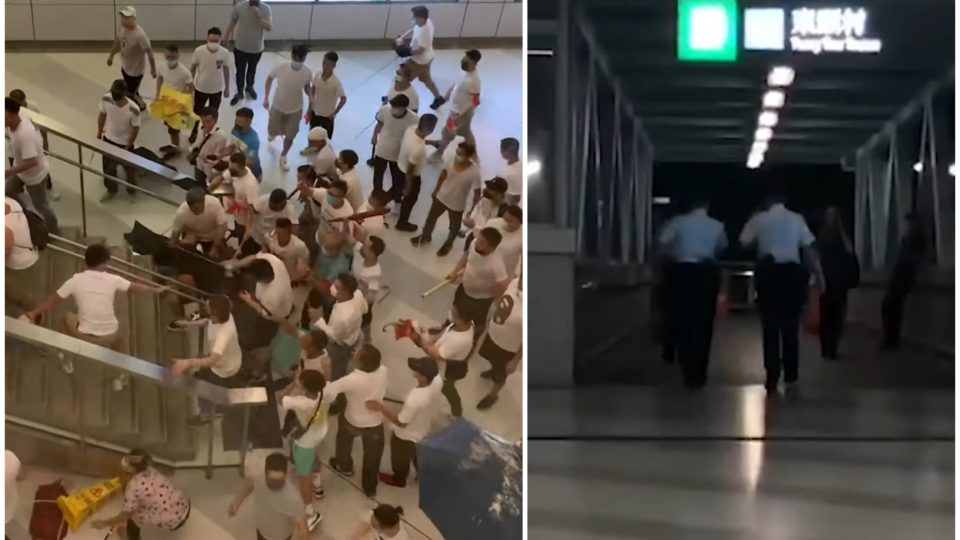Hong Kong’s Independent Commission Against Corruption (ICAC) has launched an investigation into the police’s sluggish response to the vicious assaults at Yuen Long MTR station on July 21, an incident that has strained relations between the public and the force to the breaking point.
A representative of the ICAC confirmed to Coconuts HK today that an investigation was underway, but declined to address local media reports that ICAC officers had been visiting merchants in Yuen Long requesting security camera footage from the night in question.
“The ICAC has already received complaints from citizens concerning the Yuen Long attacks and will follow up in a serious manner in accordance with the law,” Michael Hui, senior communications and media relations officer at the ICAC, said in an email. “Regarding the alleged ICAC operation [collecting footage] in Yuen Long, according to its policy, the ICAC, in general, will not comment on individual incidents.”
Business owners, however, told Now News that ICAC officers came to their shops on Fung Yau Street North at around 1pm yesterday and requested CCTV footage from July 21.
On the night of the 21st, a triad-linked mob of men dressed in white shirts and carrying wooden rods, rattan canes, and metal bars set upon pro-democracy protesters — as well as journalists, a politician, and terrified commuters — as they returned home to the Yuen Long MTR station in the New Territories.
In videos from the night, police at the scene early on can be seen leaving without intervening as the mob grew increasingly restive, while those who responded later — after the white-shirted thugs had run amok for half an hour and were already leaving — were filmed failing to stop several men believed to have taken part in the attacks, which left more than 40 injured.
Video compilations from RTHK and The New York Times appear to show, at best, serious lapses in judgement by officers at the scene, while members of the public have gone so far as to accuse the force of colluding with triads to allow the attacks. (English subtitles available below.)
While police publicly attributed the slow response to a lack of manpower due to a major protest taking place on Hong Kong Island at the time, Anthony Tsang, the acting New Territories North regional commander, later admitted that police had been tipped off to the potential for mob violence in Yuen Long hours in advance by a local politician, but decided to categorize it as “low risk.”
Legal scholar Eric Cheung told RTHK that the videos from the night were sufficient to justify an investigation, adding that refusing to conduct one’s duty without a reasonable explanation constituted misconduct in public office.
The police have been the target of intense public anger over their handling of the city’s ongoing pro-democracy protests, which are have increasingly ended in clashes with violence on both sides. That anger, meanwhile, appears to cut both ways, with social media awash in images of officers swearing and making crude gestures at protesters, and the Junior Police Officers’ Association even going so far as calling the protesters who defaced the Chinese national emblem the same night as the Yuen Long attacks “cockroaches” and “not human.”
The new anti-corruption probe is likely to be another blow to already-low morale among police, who are particularly defensive about their response to Yuen Long. Just this week, Police Commissioner Stephen Lo testily demanded to know why Chief Secretary Matthew Cheung, the territory’s second-highest-ranking official, had apologized on behalf of the force for the Yuen Long incident without their prior knowledge.





